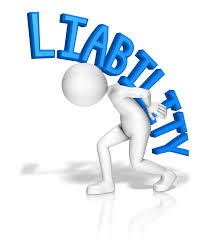In this blog post, Kaushik Neogi, a student pursuing his LL.B (4th year) from Delhi Metropolitan Education, affiliated to Guru Gobind Singh Indraprastha University and a Diploma in Entrepreneurship Administration and Business Laws from NUJS, discusses the liability of joint venture partners.
Introduction to Joint Ventures[1]
A joint venture can be said to be a new enterprise owned by two or more people. It represents a combination of subsets of assets contributed by two (or more) business entities for a specific business purpose constrained to a limited duration. It is essentially a medium to a long-term contract which is specific and flexible. Though the joint venture represents a newly created business enterprise, its participants continue to exist as separate firms.
Thus, joint ventures are of limited duration and scope. They involve only a small fraction of each participant’s entire activities. Each partner must have something unique and important to offer the venture and simultaneously provide a source of gain to the other partners. However, the partners’ competitive relationship need not be affected by the joint venture arrangement.
A joint venture can be organized as a partnership firm, a corporation or any other form of business organization which the participating partners choose to select as per the allowed ways to do business in India. It has the following elements: –
- Contribution by partners of money, property, effort, knowledge, skill or other assets to the common undertaking.
- A joint property interest in the subject matter of the venture.
- Right of mutual control or management of the enterprise.
- Right to share in the property.
In this post, we will discuss the liability of partners under the Indian Partnership Act,1932 and the Limited Liability Partnership Act, 2008.
Liability of Partners under the Partnership Act, 1932[2]
Under Section 25 of the Act, the provision of liability of a partner for the actions of the firm is defined.As per the Section, “every partner is liable jointly with all the other partners and also severally, for all acts of the firm done while he is a partner.”
Under Section 32 of the Act, the provision of the retirement of partner is provided.
As per 32(2), a retiring partner may be discharged from any liability to-
 any third party for acts of the firm done before his retirement by an agreement made by him with such third party and the partners of the reconstituted firm
any third party for acts of the firm done before his retirement by an agreement made by him with such third party and the partners of the reconstituted firm- such agreement may be implied by a course of dealing between such third party and the reconstituted firm after he had a knowledge of the retirement.
As per 32(3) Not contrary to the retirement of a partner from a firm
- he and the partners continue to be liable as partners to third parties for any act done by any of them which would have been an act of the firm if done before the retirement until public notice is given of the retirement
- Provided that a retired partner is not liable to any third party who deals with the firm without knowing that he was a party.
And 32(4) provides that notices under sub-section 32(3) may be given by the retired partner or by any partner of the reconstituted firm.
Section 35 of the Act provides for the provision of Liability of the estate of deceased Partner.
As per this Section, where under a contract between the partners the firm is not dissolved by the death of a partner, the estate of a deceased partner is not liable for any act of the firm done after his death.
Section 45 of the Act provides for the provision for liability for acts of partners done after dissolution. As per 45(1) Not contrary to the dissolution of a firm,
- the partners continue to be liable as such to third parties for any act done by any of them which would have been an act of the firm,
- if done before the dissolution, until public notice is given of the dissolution:
- Provided that the estate of a partner-
- Who dies, or
 who is adjudicated an insolvent, or
who is adjudicated an insolvent, or- of a partner who, not having been known to the person dealing with the firm to be a partner, retires from the firm, is not liable under this section for acts done after the date on which he ceases to be a partner.
And 45(2) provides that any partner may give a notice under 45(1).
Section 47 of the Act provides for the provision of Continuing authority of partners for purposes of winding up. As per this section after the winding up of the partnership, the partners may carry the business of the partnership to finish started but incomplete work of the partnership at the time of dissolution.
Provided that the firm is in no case bound by the acts of a partner
- who had been adjudicated insolvent, but this proviso does not affect the liability of any person
- Who has after the adjudication represented himself or knowingly permitted himself to be represented as a partner of the insolvent.
Liability of Partners under the Limited Liability Partnership Act, 2008[3]
Under Chapter V of the Act, the provisions for extent and limitation of liability of limited liability partnership and partners is provided.
Section 26 of the Act states that “Every partner of a limited liability partnership is, for the purpose of the business of the limited liability partnership, the agent of the limited liability partnership, but not of other partners.”
Section 28 of the Act provides for the provision of the extent of liability of partner.
As per 28(1), a partner is not personally liable, directly or indirectly for an obligation referred to in sub-section (3) of section 27 solely because of being a partner of the limited liability partnership.
And 28(2) provides that the provisions of 27(3) and 28(1)
- shall not affect the personal liability of a partner for his wrongful act or omission,
- but a partner shall not be personally liable for the wrongful act or omission of any other partner of the limited liability partnership.
Liability of a Foreign Partner
A foreign partner will have a liability as the per the domestic laws on the liability of partners in Joint Ventures.
The foreign partner may also have liability under Reserve Bank of India & Foreign Direct Investment laws and regulations.
References:
[1] http://www.archive.india.gov.in/business/growing_business/joint_ventures.php
[2] http://www.mca.gov.in/Ministry/actsbills/pdf/Partnership_Act_1932.pdf
[3] http://www.mca.gov.in/Ministry/actsbills/pdf/LLP_Act_2008_15jan2009.pdf
 Serato DJ Crack 2025Serato DJ PRO Crack
Serato DJ Crack 2025Serato DJ PRO Crack











 Allow notifications
Allow notifications


